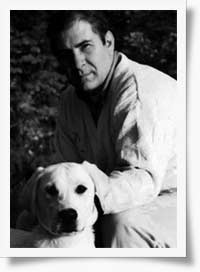 Do the ends justify the means?
Do the ends justify the means?
I have lived in Washington for more than 50 years. I have never seen a time like this. The question of ends and means comes up daily:
Do we increase the safety of Americans by banning the entry of people from Muslim countries?
Do we enforce immigration policy by separating mothers from their children?
Do we boost the economy by eliminating environmental protections?
Do we advance our political positions by demonizing those in the other party?
Nicolo Machiavelli was the first to raise the issue of ends and means in a political context in his treatise, The Prince, published in 1513. Machiavelli said a good leader – The Prince – should choose the most effective means to his ends, be they harmless or cruel and violent. For him, the only thing that mattered was the outcome.
“In judging policies,” he wrote, “we should consider the results that have been achieved through them, rather than the means by which they have been executed.”
The opposing view was best expressed and embodied by Ghandi and Martin Luther King. They felt the means and ends must be consistent. “Darkness cannot drive out darkness,” King said, “Only light can do that. Hate cannot drive out hate; only love can do that.”
In this context, John McCain’s legacy looms large. He is being remembered for his humor, humility, and courage. But he represents more than that.
John McCain knew who he was. He stood on principle, even when it did not advance his political position; and openly admitted and regretted the times he strayed from principal for political expediency.
McCain’s values were hardened in the crucible of a Vietnamese prisoner of war camp. There he was tested like few others. He had ample time – much of it in solitary confinement – to consider what he was living for, what he would die for, who he was, and who he wanted to be.
McCain came to understand that the end that matters most is not so much the goal we want to achieve but how we achieve what we achieve, and what we become in the process.
That’s how John McCain will likely be remembered. Not so much for what he said, but what he did and how he lived. He knew the means are the ends.
You cannot lie without become a liar. You cannot steal without becoming a thief. You cannot cheat without becoming a cheater. You cannot live with honor and not be honored.
McCain crossed over. He chose to be a statesman rather than a politician by devoting his life to a cause greater than himself. History will remember – as I have told my son – “That’s what a hero looks like.”


Thank you, Bill, for that great remembrance of all John McCain did and of what he has given our country.